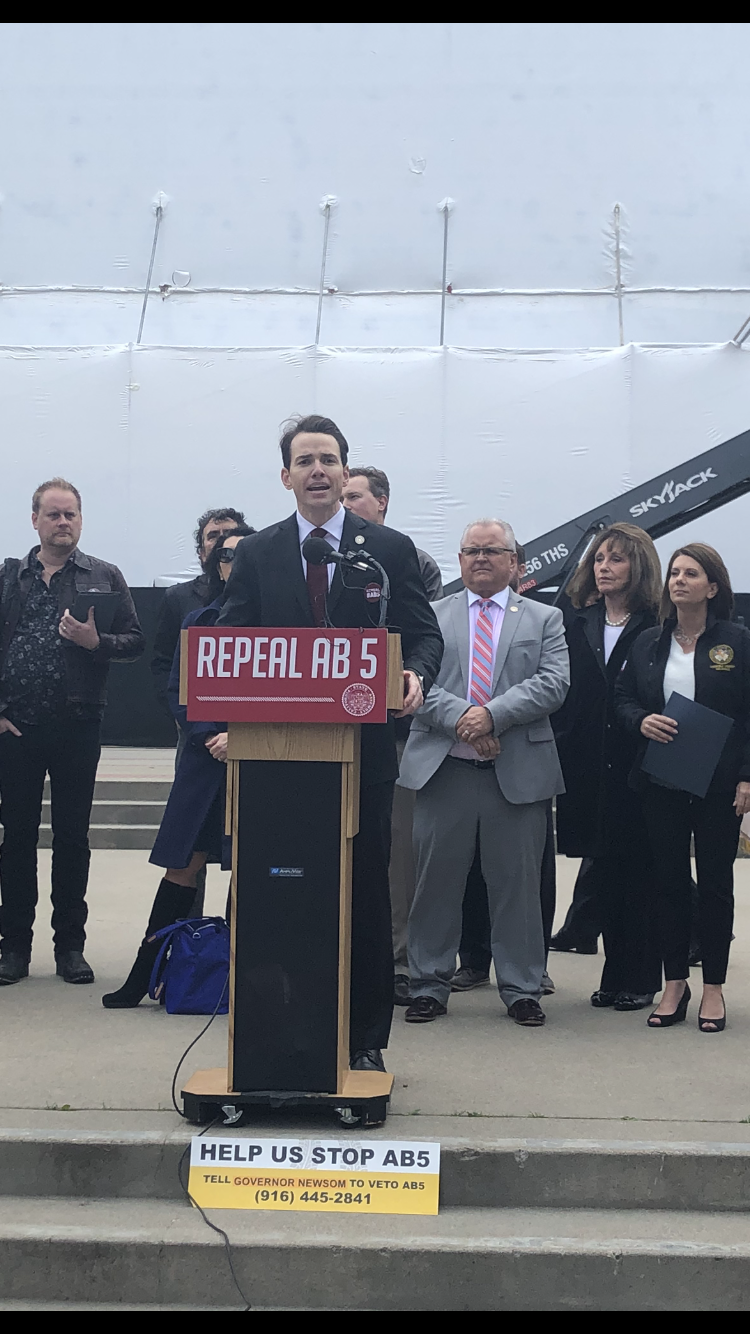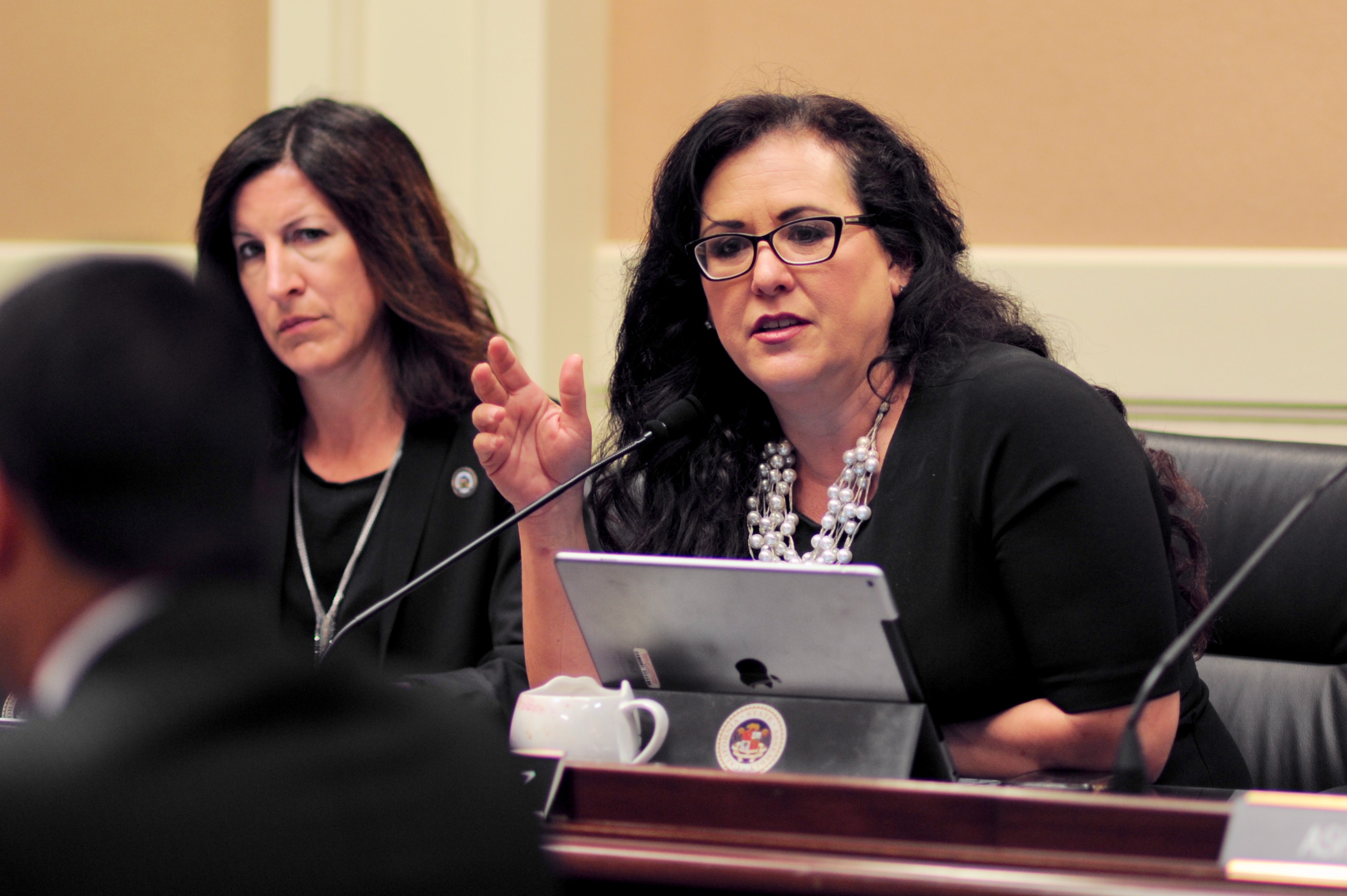
Assemblyman Kevin Kiley. (Photo: Kevin Sanders for California Globe)
AB 25: Back to Borello Factors for Independent Contractors
AB 25 would repeal AB 5 and codify the Borello case
By Chris Micheli, December 9, 2020 4:40 am
On December 7, the first day of the California Legislature’s 2021-22 Session, Assemblyman Kevin Kiley introduced Assembly Bill 25, which would repeal AB 5/AB 2257 and codify the Borello case factors in California law for purposes of determining worker classifications in this state. AB 25 would amend Section 2750.5 of, add Section 2750.7 to, and repeal Article 1.5 (commencing with Section 2775) of Chapter 2 of Division 3 of, the Labor Code.
Under current California law, Labor Code Sections 2775, et seq., codifies the “ABC Test” from the Supreme Court’s Dynamex decision from May 2018 and creates over 100 exemptions from that test. These “exemptions” simply mean that the worker’s proper classification will be determined under the California Supreme Court’s Borello decision from 1989. Its formal citation is S. G. Borello & Sons, Inc. v. Department of Industrial Relations (1989) 48 Cal.3d 341, which created a multi-factor test to determine whether a worker is an employee or an independent contractor.
AB 25 would repeal provisions of the Labor Code related to the “ABC” test and instead require the determination of whether a person is an employee or an independent contractor to be based on the specific multifactor test set forth in the Borello decision.
Section One of the bill would amend Labor Code Section 2750.5, which contains the ABC Test, by eliminating references to the test. It would do so in the following manner:
Section 2750.5 – There is a rebuttable presumption affecting the burden of proof that a worker performing services for which a license is required pursuant to Chapter 9 (commencing with Section 7000) of Division 3 of the Business and Professions Code, or who is performing such services for a person who is required to obtain such a license is an employee rather than an independent contractor. Proof of independent contractor status includes satisfactory proof of these factors:
(a)That the individual has the right to control and discretion as to the manner of performance of the contract for services in that the result of the work and not the means by which it is accomplished is the primary factor bargained for.
(b)That the individual is customarily engaged in an independently established business.
(c)That the individual’s independent contractor status is bona fide and not a subterfuge to avoid employee status. A bona fide independent contractor status is further evidenced by the presence of cumulative factors such as substantial investment other than personal services in the business, holding out to be in business for oneself, bargaining for a contract to complete a specific project for compensation by project rather than by time, control over the time and place the work is performed, supplying the tools or instrumentalities used in the work other than tools and instrumentalities normally and customarily provided by employees, hiring employees, performing work that is not ordinarily in the course of the principal’s work, performing work that requires a particular skill, holding a license pursuant to the Business and Professions Code, the intent by the parties that the work relationship is of an independent contractor status, or that the relationship is not severable or terminable at will by the principal but gives rise to an action for breach of contract.
In Section Two of the bill would add Section 2750.7 to the Labor Code. It would provide that, with specified exceptions, “a determination of whether a person is an employee or an independent contractor for the purposes of this division shall be based on the multifactor test set forth in S.G. Borello & Sons, Inc. v. Department of Industrial Relations.”
Thereafter, it would specify that those factors include, but are not limited to, the following:
(1) Whether the person to whom service is rendered has the right to control the manner and means of accomplishing the result desired, which is the principal factor.
(2) Whether the one performing services is engaged in a distinct occupation or business.
(3) The kind of occupation, with reference to whether, in the locality, the work is usually done under the direction of the principal or by a specialist without supervision.
(4) The skill required in the particular occupation.
(5) Whether the principal or the worker supplies the instrumentalities, tools, and the place of work for the person doing the work.
(6) The length of time for which the services are to be performed.
(7) The method of payment, whether by the time or by the job.
(8) The right to discharge at will, without cause.
(9) Whether or not the work is part of the regular business of the principal.
(10) Whether or not the parties believe they are creating the relationship of employer-employee.
Finally, this new code section would specify that these individual factors are not to be applied mechanically as separate tests, but are to be intertwined. In addition, these factors are to be used for any determinations before an administrative agency or court.
Section Three of the bill would repeal Article 1.5 (commencing with Section 2775) of Chapter 2 of Division 3 of the Labor Code, as added by Section 2 of Chapter 38 of the Statutes of 2020, which was created by AB 2257 in the 2020 Session.
AB 25 is likely to be heard in its first policy committee in March 2021.
- Endangered Species Regulation - February 19, 2026
- Renewal of Judgments - February 18, 2026
- Hearings on Third-party Claims - February 18, 2026





Comrades
DOA.
this suffers from the same pitfalls in the Borello criteria- some parts of which are nearly useless. I would suggest that this is all about the money and the avoidance of liability. Workers accepting risks and liability that normally would be borne by a larger corporate entity is unfair to the worker and to the public.